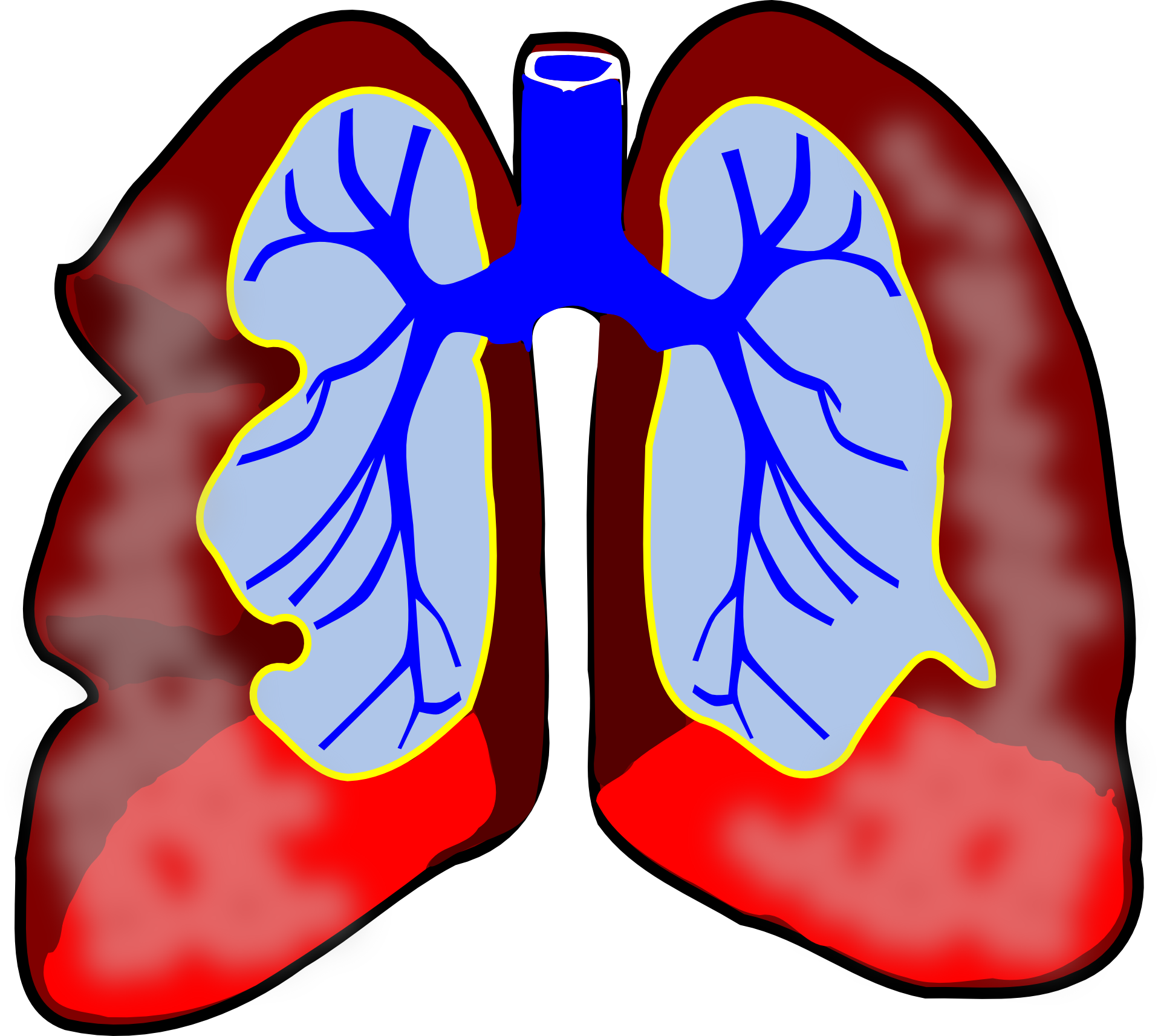
Pneumonia is an infection that causes the air sacs in the lungs to fill up with fluid or pus, which makes it harder to breathe. The most common symptoms are cough that may be dry or produce phlegm, fever, chills and fatigue. Other symptoms may include nausea, vomiting, diarrhea, and pain in the chest. and shortness of breath. Signs that indicate a more severe infection are shortness of breath, confusion, decreased urination and lightheadedness. In the U.S., pneumonia accounts for 1.3 visits to the Emergency Department, and 50,000 deaths annually.
With the COVID-19 pandemic continuing to affect people around the world, pneumonia has become an even larger health concern. Some people infected with the COVID-19 have no symptoms, while others may experience fever, body ache, dry cough, fatigue, chills, headache, sore throat, loss of appetite, and loss of smell.
The more severe symptoms of COV-19, such as high fever, severe cough, and shortness of breath, usually mean significant lung involvement. The lungs can be damaged by overwhelming COVID-19 viral infection, severe inflammation, and/or a secondary bacterial pneumonia. COVID-19 can lead to long lasting lung damage.
Here are other important facts you should know about pneumonia:,
- Pneumonia can be a bacterial, viral, or fungal infection. Any of these organisms on their own cause pneumonia. Bacterial pneumonia can also complicate a viral illness like the flu. Many viruses can cause pneumonia. Most cases of viral pneumonia are relatively mild, but some can cause severe symptoms, such as severe acute respiratory system (SARS) coronavirus and the more recent SARS-CoV-2 (COVID-19). The most common cause of bacterial pneumonia is Strep pneumoniae (often called pneumococcal pneumonia).
- Both the young and the old are at risk. Young children and older adults (over age 65) are at the highest risk of getting pneumonia, and of having complications from it. About one million adults receive care in a hospital for pneumonia and, around the world, it is the leading cause of hospitalization and death in children under 5 years old.
- Vaccines are available to help prevent pneumococcal pneumonia. The PCV13 vaccine for children younger than two and those over age two who have preexisting health conditions helps protect against 13 types of pneumococcal bacteria, while the PPSV23 vaccine for older adults protects against 23 types. Yet, about one-third of adults aged 65 and older have not been vaccinated.
- Pneumonia can be spread from person to person, but it can also be caused by other factors. Like other contagious respiratory illnesses, the viruses and bacteria that cause pneumonia can spread when an infected person coughs or sneezes, releasing germ-filled droplets into the air. The illness that results can range from mild to severe.
Read more...







